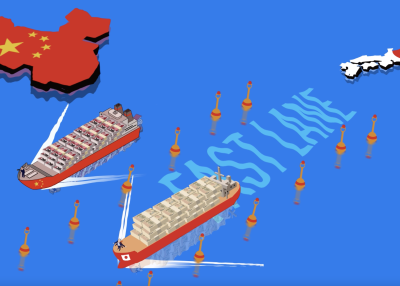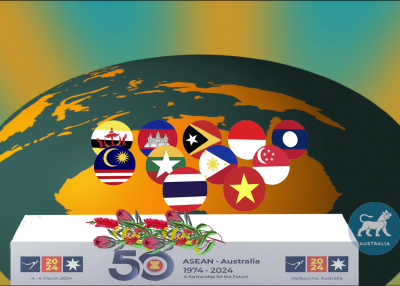Briefing Monthly #57 | December 2022
Asian studies crisis | Anwar’s Malaysia | DFAT democracy | Building Pacific ties | PLUS: Holiday reading
Animation by Rocco Fazzari
STUDY THIS
Two figures tell the story of the perverse trajectory in the study of Asia at Australian universities. Over the three decades since the early 1990s the number of Asian studies research centres has risen almost 600 per cent to 58. But over about that same time the number of full-time equivalent students of Indonesian has fallen by about 60 per cent from its 503 peak in 1992 and is now lower than in 1988.
These trends are drawn from a comprehensive new analysis of the state of Asian studies as the country embarks on a new cycle of regional engagement under the Albanese government. It is a curious story of constant policy and practice churn in educating Australians about Asia just as fees from Asian students have underpinned the accounts of those same education institutions.
The report (see ASIAN NATION) is essential reading as the recovery in Asian student numbers gathers pace after the pandemic and as institutions as diverse as Deakin University and Australia Korea Business Council pursue new models for offshore education (see DEALS AND DOLLARS).
Meanwhile, Malaysia has made the difficult democratic transition to a de facto national unity government with new Prime Minister Anwar Ibrahim putting together a multi-racial coalition of the country’s main reform and old-guard party alliances. Whether it is a government of hope or wishful thinking remains to be seen. (see NEIGHBOURHOOD WATCH).
I was at Anwar’s house the night he was dramatically dumped as the United Malays National Organisation (UMNO) deputy prime minister and finance minister in 1998. So, I have been fascinated for more than two decades about whether he would ever get a chance to refashion his country in the ambitious way he proposed back then. Now it is even more important given the challenges to democracy across Southeast Asia.
Thanks for reading this year. And now for a change of pace, we have our annual holiday book guide (See below) with contributions from some of my Asia Society colleagues. It ranges from the latest new Japanese feminist writing to a Vietnamese cookbook. Plus, an exhibition and a documentary.
Greg Earl
Briefing MONTHLY editor
ASIA NATION
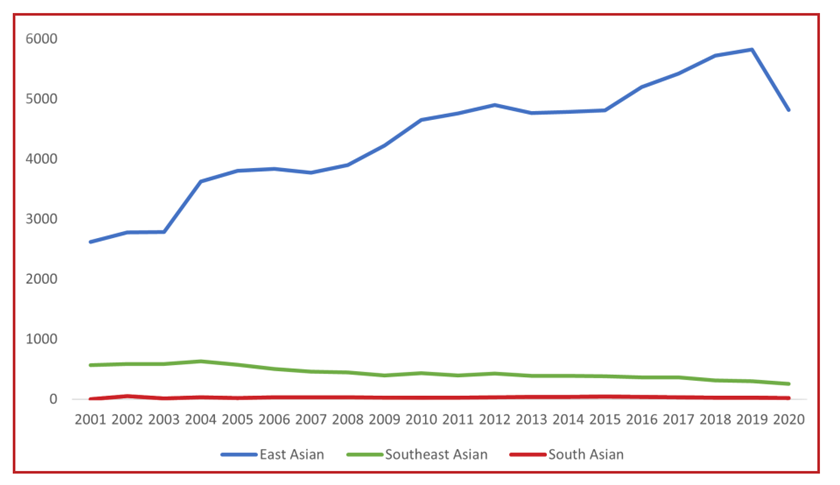
Continental divide … University Asian language study by region
LEADING OR LAGGING
The Australia’s Asia Education Imperative report on the state of Asian studies has urged governments to increase support for Asian languages and universities to set benchmarks for global leadership in Asian studies in a series of recommendations to create a new generation of Asia-capable graduates.
The project found that Asian literacy had suffered from constant inconsistency over more than three decades despite various governments declaring that Australia had growing security and economic interests in being more engaged with the region. Asian studies has been buffeted by universities placing more emphasis on market mechanisms; government’s and universities placing more emphasis on STEM subjects; a general decline in language study compared with other countries; instability in government education policies; and a rise in international students in some cases distorting language study data.
The report examines in detail how the study of Asia has shifted from specialist area studies courses to being integrated as an add-on to other courses. But it argues: “There is little systematic evidence that this process is generating sustained Asia knowledge, or moving the study of Asia away from its marginal status in most mainstream disciplines.”
It recommends that governments publish comparable annual data on Asian language study, return language funding to where it was in the late 1990s, create a new research funding stream focussed on Asia and collaboration with Asian academics, enhance the New Colombo Program to include language study, and revive Asian language library collections.
It recommends universities support Asian literacy with more dedicated Asia-focused leaders; employ more academics with Asian experience or heritage, collaborate more with governments on Asian literacy, create cross institution language study programs, and invest international student revenue in Asian studies.
It concludes that “the ability and will of Australian universities to offer Asian Studies programs depends to a significant degree on coordinated federal and state/territory government support generating initiatives and structures across all levels of education to create a pipeline of students from high schools who are interested in Asia, and keen to advance their Asia literacy skills, including language skills.”
On the issue of languages, it notes how East Asian language study has increased (see chart above) due to increased numbers of Chinese students but this has not led to an increased number of Australian China specialists. The report says the universities will only be able to deal with this dichotomy if they are resourced to allow for adequate streaming on language students based on fluency.
- See Asia Society Australia’s latest collaboration with the International Education Association of Australia on Asian skills Championing our Talent here.
COMING TO THE AID
International Development Minister Pat Conroy says aid experience should be an essential part of the background of Department of Foreign Affairs and Trade executives as he has ruled out any return to a separate development aid agency.
Speaking at the Australasian Aid Conference ahead of two reviews of Australia’s aid policy, which are still underway, he said there would be no going back to the AusAID model but that aid should be at the heart of DFAT’s operations and senior leadership.
And speaking after a hasty expansion of development aid spending to respond to the pandemic and the addition of major new spending initiatives in Pacific labour movement and infrastructure construction, he promised a higher level of transparency to judge what is working.
“The challenge, of course, is to make sure all these different elements are properly aligned and pushing in the same direction,” he told the conference. “Another element I would like the new policy to address is our approach to ensuring quality, transparency and accountability in our development program. We need to develop a more rigorous, evidence-based approach so we can evaluate whether our aid is effective, and build public support for the program.”
He also emphasised the role of local content in aid projects saying “it’s the most direct economic contribution many of our programs can make to communities, and it’s the best way for us to strengthen relationships.”
After a flurry of visits to Pacific nations by five ministers in the new government to reset the Pacific Step-up, the year has ended with the reinstatement of a bipartisan initiative from Julie Bishop’s time as foreign minister. Foreign minister Penny Wong and Conroy have taken their opposition counterparts Simon Birmingham and Michael McCormack on a bipartisan visit to Vanuatu, Micronesia and Palau.
DFAT'S DEMOCRACY
The Department of Foreign Affairs and Trade has declared that it respects different types of political and governance systems despite commissioning a parliamentary inquiry into how to support democracy in the region.
In a submission to the inquiry by the Joint Standing Committee on Foreign Affairs, Defence and Trade it says: “We recognise that many countries have endured conflict, instability and external subjugation, some recently. So we are all at different points on the journey.”
The submission says that about one quarter of all Australian development aid now goes to governance related projects which covers democracy support and Australia is concerned about declining governance standards.
But in an apparent move to head off any concerns about pressuring other countries with the inquiry, it says: “To achieve and sustain greater resilience, democratic processes must be legitimate in the eyes of the local population and be relevant to the local political, economic, social and environmental context. Partners, such as Australia, cannot and should not seek to impose change. Instead, we aim to support locally driven initiatives.”
It argues that while democratic participation requires strong election processes and government institutions, it also “must also be matched by vibrant civil society and media, in order to hold leaders to account, manage resources equitably and fully understand the needs of citizens.”
The submission raises a particular concern that technology and social media are threatening democracy in the Asia-Pacific and questions whether “this brings new complexity to the challenge of working in support of democratic and accountable institutions.”
NOT QUITE "ALL THE WAY"
Australians continue to be well disposed towards the US alliance but are nonetheless determined to maintain capacity to act independently due to concerns the Alliance could make their country a target for China or curtail its ability to act independently.
Polling of ordinary Australians after special roundtables on US relations showed that 69 per cent thought the Alliance was useful. But restrained supporters wanting some room for independence were the dominant group at 33 per cent, followed by strong supporters at 30 per cent, with sceptics at 23 per cent and opponents at eight per cent.
The analysis of the research, led by the US Studies Center and released ahead of this month’s AUSMIN talks, says that Australians want to extract maximum benefits from the Alliance with minimal commitments on Australia’s part. Even strong supporters believe that the bedrock of the Alliance is shared interests, rather than shared values, or indeed a sense of shared history.
The report says: “There is uncertainty among Australians about what the Alliance is for today, as distinct from what it is against, or what it has been in the past. The perceived lack of a sense of purpose in the Alliance is a common theme.”
Instead, many Australians want to extend the Alliance to cooperation beyond the traditional defence context, particularly to address climate security.
“In this respect, the alliance is, for many Australians, an incomplete project. “The broader point expressed by participants is that the alliance will need to adapt to new and emerging challenges if it is to remain relevant in the 21st century,” the report says.
TURNING JAPANESE
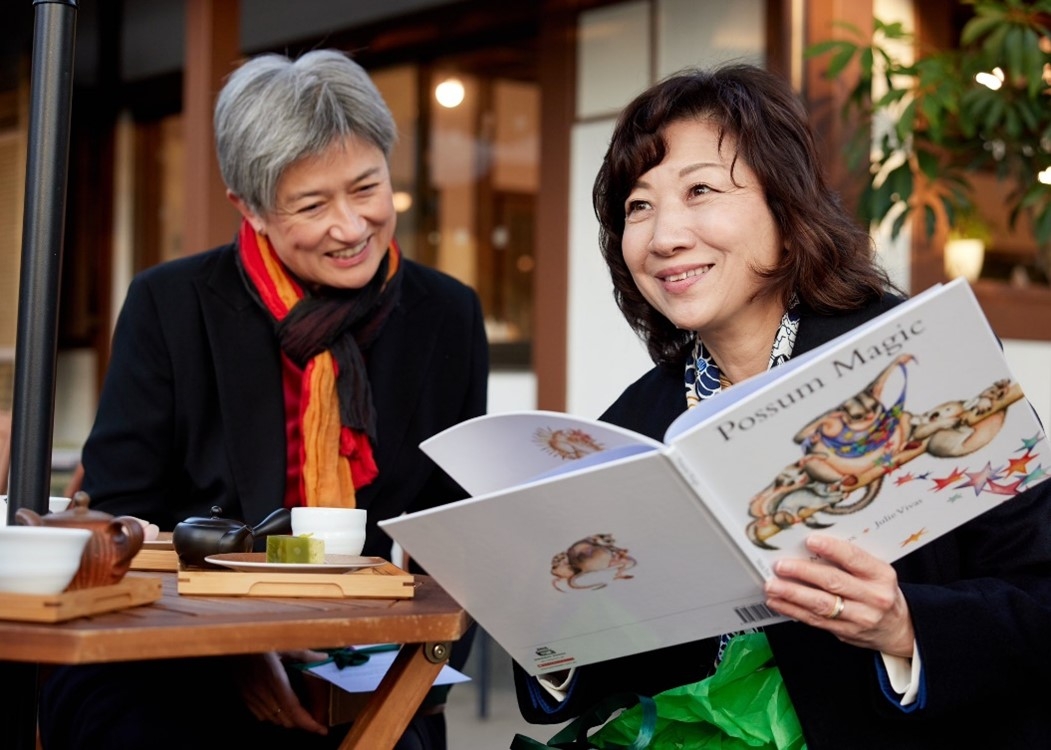
Penny Wong with prominent Japanese politician Seiko Noda during the 2+2 talks.
Australian defence personnel will not have immunity from the death penalty if they commit offences that carry that sentence while operating in Japan under a long-delayed military co-operation agreement.
The reciprocal access agreement is set to be endorsed by federal parliament next year after Parliament’s Joint Standing Committee on Treaties declared this month it was in the national interest.
The Committee report emphasises that it examined the use of the death penalty in Japan, the perceived conflict between the proposed agreement and Australia’s abolition of the death penalty, and the protection offered by the proposed agreement against the potential use of the death penalty.
It says the Department of Defence confirmed the agreement would not protect Australians from the death penalty should they be convicted of a relevant offence. It instead commits Australia “to not obstruct the exercise by Japan of its domestic criminal jurisdiction”, while reserving the right “to not assist Japan in certain circumstances where doing so would risk Australia violating our own obligations’.
The Committee found that while blanket immunity was not achieved, considerable steps had been taken to protect Australian personnel from the death penalty in Japan, while also maintaining Australia’s international obligations.
The agreement, which has been under negotiation for seven years largely due to the death penalty issue, will allow easier movement of defence personnel and equipment between the countries, and sets out arrangements for command and control, cost reimbursement and the use of military facilities by each nation’s forces in the other country.
Meanwhile, Japanese warplanes could be deployed Australia under plans to deepen defence co-operation and Defence Minister Richard Marles has shown a desire to bring Japan into the AUKUS co-operation on military technology, excluding nuclear-powered submarines.
The communique from defence and foreign minister “2+2” talks in Tokyo this month flagged the possibility of a “future rotational deployment” of Japanese F-35s to Australia, while Australian fighter jets will take part for the first time in war games hosted by Japan next year.
NEIGHBOURHOOD WATCH
ANWAR'S MALAYSIA
Malaysia’s new Prime Minister Anwar Ibrahim has kicked off his time in power by both raising issues about questionable spending under the previous government but then giving substantial coalition power to the long ruling United Malays National Organisation (UMNO), which was part of the last coalition government.
The contradiction underlines the challenges the prime minister faces dealing with the reformist aspirations of his own Parti Keadilan Rakyat (PKR), which is now back in power for the second time, and the divisions within UMNO over cooperating with Anwar, a former member turned opponent.
The 28-member Cabinet reflects the challenge. Anwar has kept the powerful finance ministry for himself but has been forced to appoint two deputy prime ministers for the first time in Malaysia history. They are UMNO’s leader Zahid Hamidi, who is facing graft charges, and Fadillah Yusof, who comes from the eastern Malaysian party Anwar needed to form government and which now has five cabinet seats.
The delicate power sharing has probably brought short term stability to the new government as Anwar considers major economic policy issues but has already drawn criticism from some of his core supporters. He only has a narrow window to make it work with six of the country’s 13 states due to hold polls by the middle of next year when the country’s political balance will again be up from grabs.
- Penang Institute director Ooi Kee Beng says Anwar’s rise to power underlines the resilience of Malaysia’s “reformasi” movement.
CHINA RELATIONS
It may have been a convenient twist of fate but the once anticipated but increasingly tortuous marking of the 50th anniversary of diplomatic relations between Australia and China has been overtaken by reality.
From China’s apparent reversal on pandemic shutdowns, to the death of former President Jiang Zemin to the signs that the US will lead the way on renewed engagement with Beijing, the flow of news from China has meant that both positive and negative views about the historic anniversary on December 21 appear to be failing to cut through as they might have.
- The Australia-China Relations Institute has produced the most substantive anniversary event so far with a conversation between serving ambassadors Graham Fletcher and Xiao Qian and former ambassadors Stephen FitzGerald and Fu Ying. With the relationship apparently now stabilising, Fletcher offers the observation that tension was always likely to have occurred because there were so many points of contact between the two countries.
- Meanwhile former prime ministers John Howard and Kevin Rudd have each made interesting comments about Jiang Zemin’s significance for Australia.
TAIWAN GOING LOCAL

Stepping back … President Tsai Ing-wen
Taiwan’s local elections have delivered a double-edged message to China with the ruling, more independence-oriented Democratic Progressive Party (DPP) losing ground but voters yet again showing how feisty the country’s democracy is.
DPP President Tsai Ing-wen stood down as her party’s leader (but not as President) after the main opposition Kuomintang (KMT) claimed victory in the majority of local government positions up for election. “It's not like the DPP has never failed before,” Tsai, who will continue serving as president until 2024, said. “We don't have time to feel sorry. We fell, but we will stand up again.”
In apparent hubris after growing international support for Taiwan in its territorial tensions with China, both the DPP and many international observers had framed the election as a vote on relations with China. But Taiwanese people appear to have voted on local issues where the KMT still has a strong record of delivery.
- This was a local election but the KMT still has regained political momentum, says Russell Hsiao from the Global Taiwan Institute.
PNG'S GROWING PAINS
Papua New Guinea Prime Minister James Marape has played down an estimate that the country’s population may be almost two times the official number - but nonetheless left a cloud hanging over Australia’s aid strategy for his country.
The Australian reported that a United Nations Population Fund study, funded by Australia, had used satellite modelling and other techniques to estimate a population of 17 million which would almost halve the per capita income of Australia’s closest neighbour to that of African states such as Sudan and Senegal. That would raise questions about the appropriate Australian aid strategy for PNG which receives about $600 million a year but has been receiving extra funding through budget injections and infrastructure in recent years.
Marape has responded that the UN figure is an “assumption” and the real population figure is between nine and eleven million.
- Maholopa Laveil argues at The Interpreter that getting PNG’s economic growth strategy right is more important than aid.
DEALS AND DOLLARS
BUILDING PACIFIC TIES
The federal government has agreed to increase staffing for the Australian Infrastructure Financing Facility for the Pacific (AIFFP) and consider posting more staff on the ground in the region in response to a review of the three-year-old scheme. It will also give a higher priority to maintenance of the completed infrastructure projects.
The actions come after the Morrison and then the Albanese government this year boosted the lending and grant resources of the AIFFP – which is a key part of the Pacific Step-up – to $4 billion. The latest actions come ahead of the broader review of development aid which will be completed next year.
The external review found that the AIFFP is operating effectively to source, select and execute investments in quality Pacific infrastructure which are in line with the needs of Pacific countries. It points out that in three years the agency has become the second largest infrastructure financier in the Pacific both in financing value and number of projects. It has also expanded its activity faster than the parallel domestic agency the Northern Australia Infrastructure Facility. But its staff to lending ratio is less than a third that of the Asian Development Bank or World Bank underlining how this may be a constraint on future activity.
However, the review raises several questions about the efficiency of way the AIFFP operates in conjunction with Export Finance Australia and whether a new structure is necessary.
TWO FOR ONE WITH INDIA
Australia’s interim trade agreement with India will take effect from December 29 following the completion of the implementation regulations in both countries in late November.
The government estimates the Australia-India Economic Cooperation and Trade Agreement (ECTA) will save Australian exporters around $2 billion a year in Indian tariffs, while consumers and business will save around $500 million in tariffs on imports of finished goods, and inputs to local manufacturing sector. Tariffs on 85 per cent of Australia's exports to India will be eliminated and high tariffs on a further five per cent of goods will be phased down.
The implementation of the agreement on December 29 has the added twist of two tariff cuts in quick succession: one as the agreement comes into effect and a second on January 1.
ECTA, which was finalised just before the election, is the long sought outcome from the over-ambitious commitment in 2014 by then Prime Minister Tony Abbott and his Indian counterpart Narendra Modi to produce a trade deal in a year. But the two countries are now embarked on negotiating the broader Comprehensive Economic Cooperation Agreement where Australia is pursuing further opportunities in goods and services, in addition to new commitments in areas such as digital trade, government procurement, and new areas of cooperation.
EDUCATING INDONESIA
Deakin University is joining the Australian university push into Indonesia with plans to open a campus in Bandung 2024 in a partnership with Lancaster University, from the United Kingdom, and private tertiary education provider Navitas.
Deakin pro vice-chancellor for international John Molony told The Australian Financial Review the group had been working with regulators in Indonesia over the past nine months and were ready to launch their official application.
They will be joining Monash which opened its standalone operation in Jakarta last year and the Central Queensland University which offers professional development courses in Jakarta in a partnership with Indonesia’s Bakri University.
Deakin has yet another model by partnering with Lancaster to provide curriculum and academic leadership, while Navitas will establish and run the campus, with marketing and recruitment activities.
CHINESE MONEY
Australia’s new top foreign investment official has touted a revival of Chinese investment interest in Australia after a sharp slowdown as a result of the meeting between Prime Minister Anthony Albanese and Chinese president Xi Jinping.
In his first public speech since being named Foreign Investment Review Board (FIRB) chairman following the death of David Irvine, Bruce Miller said the meeting at the Group of 20 summit in Bali had marked a stabilisation of ties.
“It may well be that there are more investment applications from China because there have been fewer than in say three or four years ago,” he told The Australian Financial Review Infrastructure Summit. “We’re not going back to 10 years ago, but we are stabilising the bilateral relationship and hopefully, we can resume – you know – a normal sort of relationship.”
But Miller warned there were still concerns about the national security implications of Australia seeking foreign infrastructure investment to accelerate the transition from fossil fuels. “Foreign investment has a big role to play in building our infrastructure. But it can also pose challenges to our national security. Balancing the benefits and the risks, and searching for risk mitigants, including through attaching conditions to approvals, is the heart of what the FIRB does and, if it works well, can help the government assure Australians that foreign investment is in their interests.
“The foreign investment framework needs to keep pace with changes in the foreign investment landscape, as balancing economic benefits with the national interest, including national security, will only become more complex with technological advancements and as we move towards a low carbon future,” he said.
EDUCATING KOREA
New Colombo Plan scholarship recipient visits (2014-18)
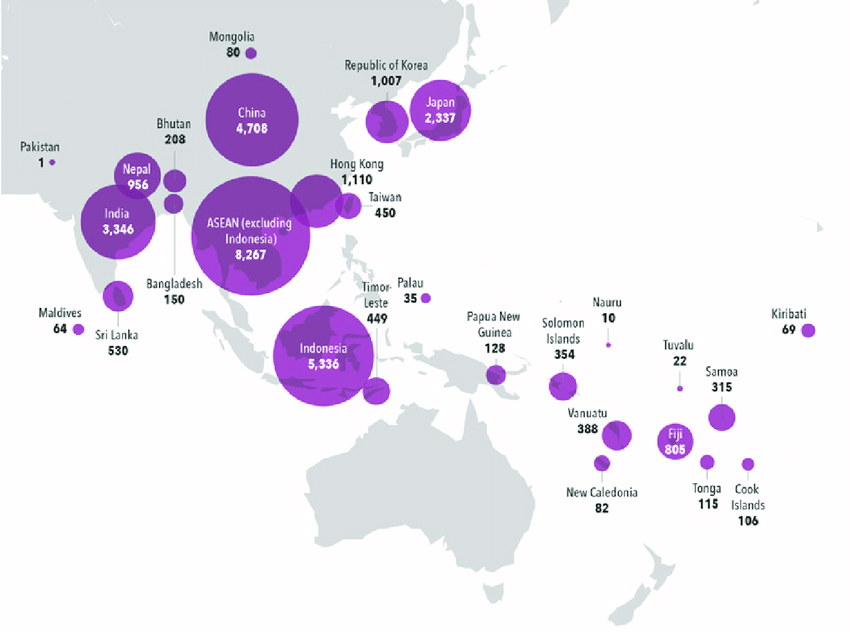
Source: International Education Association of Australia
The Australia-Korea Business Council has called for a revival of education connections with South Korea in a new report after a sharp fall the number of Korean students in Australia in recent years.
The Bridges to the Future report says that vocational and school education in Australia is popular with Koreans and can be used as the foundation for building stronger enrolments in higher education. From being the fifth largest source country for international students in Australia six years ago, the country has now slipped to 13th at about 11,000 students. But by contrast Korea is now the sixth most popular destination for Australian students studying abroad under the New Colombo Plan and the report argues this should be expanded upon..
The Comprehensive Strategic Partnership between the two countries last year noted that “enhancing people-to-people links” should be a pillar of strengthening the relationship in future years and the report says education is an essential interface through which to do that. And the report says: “Two open and outward-looking nations, Australia and Korea’s position in the Indo-Pacific places them in an ideal position to capitalise on the growing demand for international education, collaboration, and their associated benefits,” the report says.
It says that partnering in education and research is vital to achieving another big strategic objective of combining Korea's world-leading technology and industry (for example in electric vehicles and batteries) with Australia's critical mineral and energy resources in order to improve long-term supply chain security and achieve net-zero targets.
DIPLOMATICALLY SPEAKING
"The 2022 World Cup’s legacy will depend on whether Qatar remedies with FIFA the deaths and other abuses of migrant workers who built the tournament, carries out recent labor reforms, and protects human rights for all in Qatar – not just for visiting fans and footballers."
- Human Rights Watch director of global initiatives Minky Worden (November 14)
"We know that without workers, including many migrant workers, this World Cup simply would not have been possible. Qatar has made meaningful strides in recent years to improve its labour laws, to expand worker rights. We meet at what is a high point of the five-decade-long diplomatic relationship between our countries. On every issue that matters to our nations, our collaboration, I think it’s fair to say, is deeper and our people are better off for it."
- US Secretary of State Antony Blinken (November 22)
"As the Australian government representative, I came here to put on the table our position, which is that we acknowledge the very worthy advances that have been made in the past 12 years [surrounding workers’ rights in Qatar] and that we want to see that continue .... We all have to be prepared to advance the cause and we all have to acknowledge that we can do better … Beyond supporting the Socceroos, we need to show up and take our seat at the table again. It's important to show up and have the discussions."
- Sports minister Anika Wells (November 23)
DATAWATCH
Asia studies research centres by state
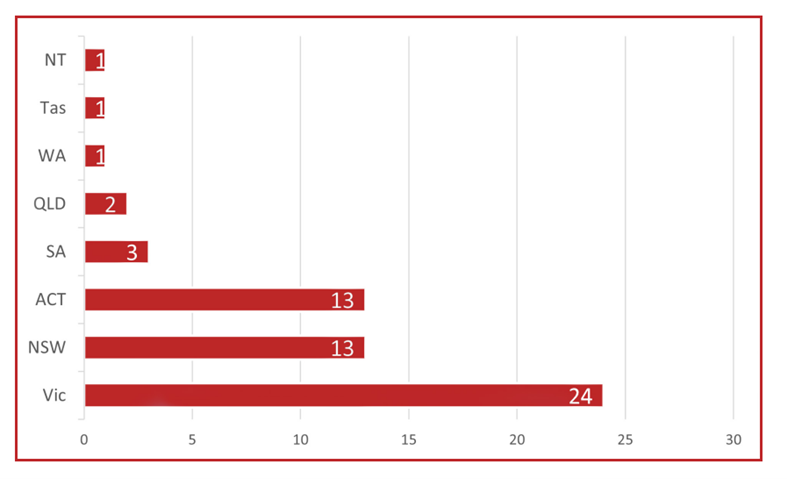
Source: Australia's Education Imperative report
OUR HOLIDAY READING LIST
RICHARD MAUDE - Executive Director of Policy at Asia Society Australia
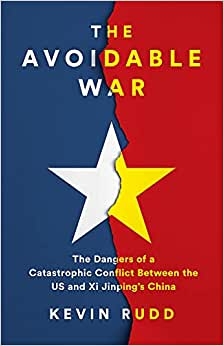
The Avoidable War: The Dangers of a Catastrophic Conflict between the US and Xi Jinping’s China by Kevin Rudd
There are days when new books on China come at readers like bullets from a machine gun. How to choose? This is an Asia Society newsletter, so it would be remiss not to lead with books from the stable. Asia Society President and CEO Kevin Rudd’s “The Avoidable War” is a sweeping, painstakingly researched account of how China has changed under Xi Jinping and a clarion call for the United States and China to stave off geopolitical disaster through a disciplined and structured approach to managing their strategic competition. The distinguished sinologist Bates Gill, now head of the Centre for China Analysis at the Asia Society Policy Institute, has written a similarly definitive account of China’s global ambitions (see below).
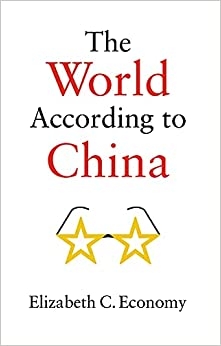
The World According To China by Elizabeth Economy
“The World According to China” is an interesting companion to the Rudd and Gill volumes. Rather than focussing on drivers, Economy (who is now working on China in the Biden Administration) argues Xi has a bold strategy to transform the international system."
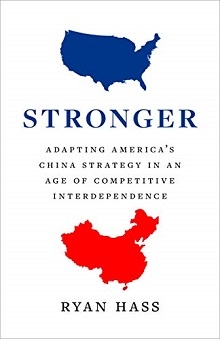
Stronger by Ryan Hass
Stronger is a good antidote to the headache that thinking too much about China inevitably brings. Hass argues for proportionality in judging the challenge from China and for greater confidence in the United States in its ability to manage through a changing global order. The best way for the United States to stay ahead of China, Hass says, is to invest in domestic renewal. That is good advice.
SARAH CARR - Associate Director of Communications at Asia Society Australia

Cooking with Madame Tuyet Mai
Asia Society Australia had the pleasure of hosting Madame Tuyet Mai in the second half of this year and she gave us a copy of her cookbook. The recipes are simple but filled with tradition and love, each one carefully handwritten by Madame Mai. Highly recommend trying out the recipes at home, many using the incredibly delicious ingredient Moringa.
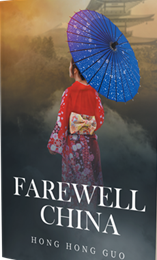
Farewell China by Hong Hong Guo
Chieko and her infant son, (Fumie) became trapped as the Japanese tried to flee Manchuria. Not knowing her husband's fate, Chieko decided to do whatever it would take to find a way back to her homeland, Japan. Farewell China is the story of one woman's resilience and bravery in the face of seemingly insurmountable odds.
WARWICK SMITH - Chairman Emeritus at Asia Society Australia
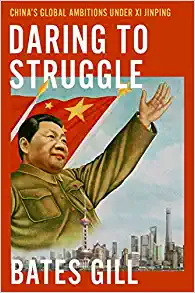
Daring to Struggle: China's Global Ambitions Under Xi Jinping, by Bates Gill
Bates Gill skilfully explains the fundamental motivations driving the country's more dynamic, assertive and risk-taking approach to the world under Xi Jinping.

The Secret History of the Five Eyes by Richard Kerbaj
This book uses interviews with former leaders and intelligence officials to tell the story of the most powerful and least understood intelligence alliance.
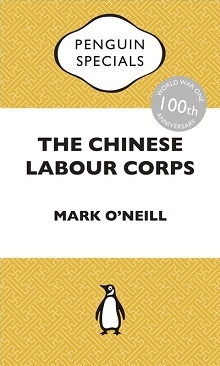
The Chinese Labour Corps by Mark O’Neill
Journalist Mark O’Neill tells the story of a contingent of Chinese labourers sent to Europe by their government to help the allies in World War Two and amid discrimination and shocking working conditions.
JAMES SCULLIN - Director of Programs at Asia Society Australia
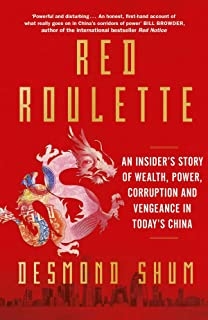
Red Roulette: An Insider’s Story of Wealth, Power, Corruption, and Vengeance in Today’s China by Desmond Shum
Not since The Private Life of Chairman Mao has a book taken readers so close to the centre of Chinese elite politics. Entrepreneur Shum looks back on his career currying favour with the upper echelons of Chinese power during the hay days of China’s private sector in the early 2000s. Shum documents his fall from grace as the Xi era saw the Party wrestle back control from China’s investor class, leading to Shum emigrating to the UK and his wife now missing in China.

Russia 1985-1999: TraumaZone by Adam Curtis (Documentary)
The latest documentary from filmmaker Adam Curtis uses BBC archival footage covering the period from the dissolution of the Soviet Union up until the anointment of Vladimir Putin. Curtis uses gripping, and at times, surreal footage of Russians coming to terms with inflation, war and an identity crisis that saw the collapse of the communist system and a short-lived democratic experiment. For Chinese cadres and policy makers, the fate of this period of Soviet life continues to provide guidance on how to avoid a similar fate.
CHRIS KHATOUKI - Associate at Asia Society Australia
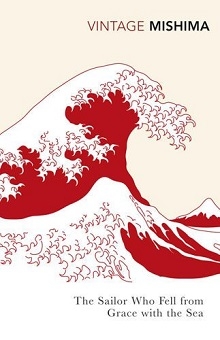
The Sailor Who Fell From Grace with the Sea by Yukio Mishima
Not exactly new, but Yukio Mishima’s 1960’s classic demands re-exploration. Beneath this short and poignant story of patricidal revenge, lies a parable for the dying ideals of Japanese exceptionalism. It’s a haunting allegory written during a time of enormous national change and cultural unease. As Japan once again grapples with political violence and militarisation – albeit under very different circumstances – I found this novel to be of endless fascination.
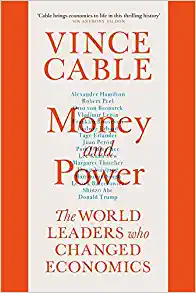
Money and Power: The 16 World Leaders Who Changed Economics by Vince Cable
Money and Power is an accessible dive into the lives of sixteen leaders across Europe and Asia who staked their claims to power on economic transformation. It offers remarkable insights into a broad cross section of economic history and highlights that through economic policy our politicians have the power to fundamentally transform people's lives – for better or worse.
ANDREW DEANE - Associate Director of Development and Partnerships at Asia Society Australia

China-The Past is Present @ NGV International
I’ll be at NGV International over Summer, not least for the Alexander McQueen: Mind, Mythos, Muse exhibition. But when I want to avoid the hordes there, I will also be checking out China – The Past is Present free exhibition (until 19 February) for the juxtaposition of ancient and contemporary Chinese art. Then I’ll saunter outside for the Temple of Boom by Adam Newman and Kevin Tsang. Don’t forget to tap into your inner child and touch the Water Wall on your way in (or out).
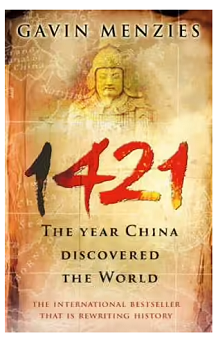
1421 by Gavin Menzies
This account of how Chinese sailors might have landed on the east coast of Australia before Europeans is something many historians question. But I found it fascinating to ponder how the Australian continent might have been a very different country (or countries!) if post-indigenous settlement had occurred in another way.
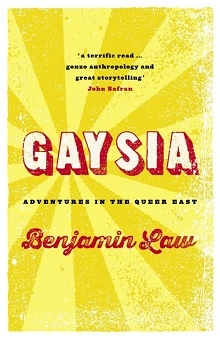
Gaysia by Benjamin Law
He will be the first to admit this part memoir is getting a bit old, but Law provides great insights into the experiences of queer communities in Asia and the attitudes towards to the queer community is countries he visits to experience different lives to what he has in Australia.
GREG EARL - Editor of Briefing Monthly
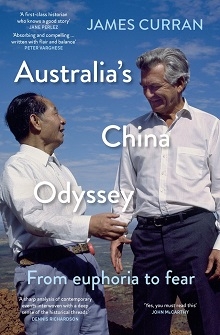
Australia’s China Odyssey by James Curran
As a historian of the Australia-US relationship, James Curran brings a useful fresh perspective to the downturn in relations with China. He is neither shocked like so many sinologists about the changes in China, nor is he wedded to dependence on the US like so many adherents of the ANZUS alliance. While a modest rebalancing of the China relationship has been occurring under the new Labor government, Curran’s argument that the “China threat narrative” unwittingly revives Australian anxiety about being an isolated European outpost remains highly relevant.

Diary of a Void by Emi Yagi
For 40 weeks the young Japanese salary woman at the core of this book lives between the dream and the reality of a pregnancy which doesn’t exist. Shibata, whose first name we never discover to underline her status in a minor manufacturing company, declares herself to be pregnant to avoid the boredom and sexism of her working life. This suddenly gives her some initial privileges which reflect the perversity of the Japanese system which needs women to be more fertile but doesn’t provide the capacity to continue a longer term, professional life. New author Emi Yagi gently but powerfully questions this system.
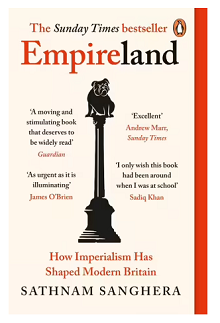
Empireland by Sathnam Sanghera
Australia only gets a modest mention in this account of how colonialism has shaped modern Britain in ways that are hard to discern given the greater attention to how British empire shaped the world, particularly in places like India. From the first curry house in England opened by an Indian Muslim in 1809 to the go it alone mood behind Brexit, Sanghera provides a fascinating account of how British language and institutions reflect colonialism. As he responds to racist jibes: “We (Indians) are here (in Britain) because you were over there (in colonial India).”
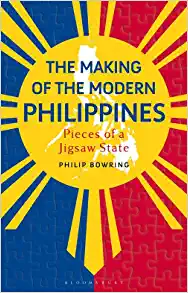
The Making of the Modern Philippines by Philip Bowring
This book provided a timely regrounding in the challenges facing new President Ferdinand Marcos Junior ahead of a return visit this year just after the after the presidential election. Bowring places those challenges in a long historical context but then overlays this with a series of more interesting and useful thematic chapters. With the Philippines locked into the regional tussle for power between the US and China, he argues that it needs to shift from a colonial heritage under Spain and the US to seeing itself as more part of the Malay world from which it emerged.
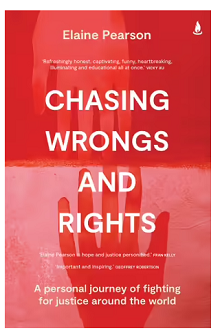
Chasing Wrongs and Rights by Elaine Pearson
Elaine Pearson has become well known as a media commentator since opening the Human Rights Watch office in Australia in 2013, but this book draws on her earlier diverse work around the world in this field. While it is in part a personal memoir, it is also a gritty account of how persistent action by individuals can make a difference in winding back terrible cases of inhumanity towards individual and minorities by governments and majority groups round the world.
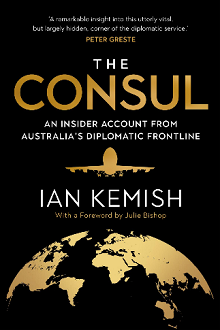
The Consul by Ian Kemish
As the holiday travel season gets under way, former senior diplomat Ian Kemish provides a quite compelling insight into the process of rescuing Australians from all kinds of trouble abroad. Australians made 11 million international trips in 2019 which was three times the number two decades earlier when Kemish was in charge of consular affairs in the Department of Foreign Affairs and Trade. Consular officials dealt with about five deaths, five hospitalisations and three arrests every day that year and Kemish details the growing cost, preparation required and the gruelling work in Asia and elsewhere.
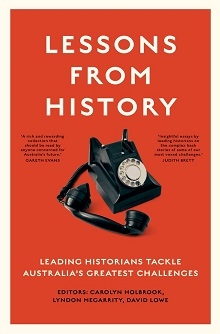
Lessons from History edited by Caroline Holbrook, Lyndon Megarity and David Lowe
While this collection of writing by historians deals with broader themes than Australia’s relationship with Asia, it makes a useful contribution to the renewed debate about how history can explain the tensions with China. Or as Graeme Davison observes: “The past may be a different country, but not so that it has no lessons for us.” Frank Bongiorno writes about the Munich appeasement narrative’s continued relevance. Hugh White says comparisons with 1914 are more useful. David Lowe dissects public attitudes to aid. And Simon Ville says foreign investment faces new challenges.
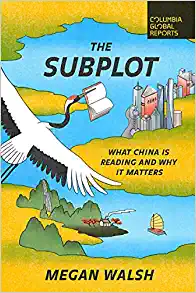
The Subplot by Megan Walsh
With foreign journalists and other analysts increasingly locked out of China Megan Walsh makes a strong case that contemporary Chinese literature can still tell us a lot about where the country is going. This survey of what Walsh describes as a “mixture of staggering invention, bravery, and humanity, as well as soul-crushing submission and pragmatism” ranges across fiction from cartoons, to poetry, to science fiction and is particularly insightful about much online publishing of challenging material is still occurring to despite internet restrictions.
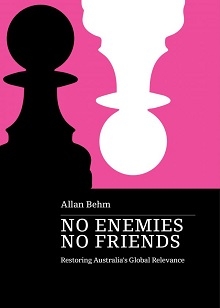
No Enemies, No Friends by Allan Behm
Allan Behm, a former public servant and Labor ministerial adviser, argues that too much of Australia’s international relations literature revolves around military history or defence preparation debate. So this book attempts to address “novel features of the contemporary strategic environment” being human security issues arising from climate change and the decline in defence security due to Australia’s relative economic decline. In doing so he argues that while Australia has much to be proud of in presenting itself to the world, it tends to approach foreign policy with a deep sense of insecurity.
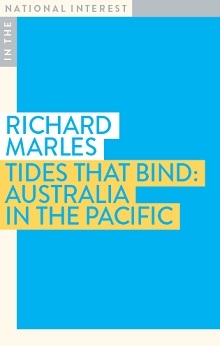
Tides that Bind by Richard Marles
Deputy Prime Minister Richard Marles has his work cut out as defence minister but in the months since the election he has also noticeably spoken more broadly on the government’s international relations agenda. This book, published last year when Labor was still far from office, explains Marles’ longstanding interest in the Pacific dating to a high school visit. It is more about sentiment than policy (of which there has since been a lot from Labor) but is worth a read given his current stature. For example, he says an aid focus has limited Australia’s imagination and we can learn a lot from New Zealand.
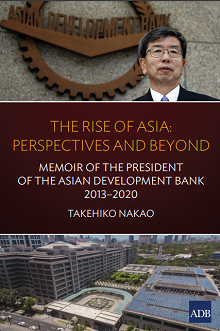
The Rise of Asia: Perspectives and Beyond by Takehiko Nakao
Having met the author as both a Japanese finance ministry official and then Asian Development Bank president, I was fascinated to see this memoir detail the importance Nakao placed on dealing with the media. But this book is much more interesting for providing an English language insight into the thinking of a top Japanese financial official on regional economic affairs at a time of great change including the emergence of the Chinese Belt and Road Initiative and the Asian Infrastructure Investment Bank. While overburdened by too much of his official diary, Nakao has some interesting cautious reflections on overhyping an “Asian Century”.
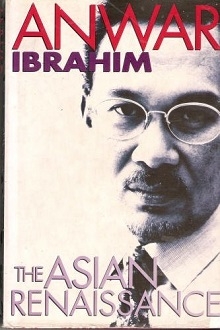
The Asian Renaissance by Anwar Ibrahim
One from the bookshelf. New Malaysian Prime Minister Anwar Ibrahim is often seen as a political chameleon for his capacity to be both a Malay Islamist and a globalised liberal. This book from his previous time in government in 1996 spans both. But it is also about his vision for making Malaysia a globally competitive modern open country, so it provides a useful benchmark for assessing what he now tries to do. And some things don’t change, as he wrote back then: “There are today in Asia progressive currents, yet, retrogressive counter currents are not to be discounted.”

